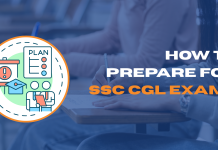Introduction
Physics is a branch of science that seeks to understand the fundamental principles governing the behaviour of matter, energy, space, and time. It is one of the oldest and most essential scientific disciplines, aiming to uncover our universe’s underlying rules. Through precise mathematical models, experiments, and observations, physicists attempt to describe and predict the behaviour of everything from subatomic particles to galaxies, making it a truly universal science.
In simple terms, Physics is a study of how the universe behaves. The entire universe operates according to specific patterns, following specific rules, which can be at least partially comprehended by humans and thus making the pursuit of this scientific study highly valid. It is also commonly held that these laws could predict the future of the universe if complete information about the present state of all light and matter were available. This indicates that particles and objects do not function in isolation but adhere to established patterns. The laws of physics represent the fundamental principles of nature, offering insights into the characteristics of particles, such as protons and electrons, as well as the forces that influence them. Understanding the universe would be an insurmountable task without these essential laws.
Among these are fundamental principles such as Newton’s laws of motion, which elucidate the motion of objects in response to forces, Maxwell’s equations that unveil the nature of electromagnetism, Einstein’s theory of relativity, which establishes the connection between mass, energy, and space-time, and the ground-breaking revolution of quantum mechanics, which delves into the behaviour of particles at the atomic and subatomic levels.

Role of Physics in Other Disciplines
Physics serves as the essential foundation for numerous necessary fields and directly contributes to the progress of others. For instance, Chemistry heavily relies on atomic and molecular physics as it revolves around the interactions of atoms and molecules. In Geology, several aspects such as radioactive dating of rocks, earthquake analysis, and understanding heat transfer within the earth depend significantly on physics. Engineering, in all its branches, essentially involves the application of Physics principles. In Architecture, Physics forms the fundamental basis for ensuring structural stability. It plays a crucial role in various aspects such as acoustics, heating, lighting, and cooling of buildings.
Also, in interdisciplinary fields like Biophysics and Geophysics, Physics blends with other disciplines, creating hybrid areas of scientific knowledge. Furthermore, Physics remains the core essence of science, making it invaluable across all scientific domains. Having a grasp of the fundamental laws of physics and proficiency in applying analytical methods based on these laws prove exceptionally advantageous.
At the foundational level of nature, we find the laws of physics are considered the most fundamental. It is widely held that all other laws are derived from these basic principles, and as time progresses, further discoveries of such laws continue to occur. These laws of nature represent patterns or observations drawn from specific experiments and hold true for every element within the universe. Some theorists propose that these laws came into existence alongside the formation of our current universe. Had the universe taken a different form, the rules governing it might also have been different. Physics, Chemistry, and Biology, which are regarded as the cornerstones of science, deal with discussions about the laws of nature. In fact, understanding physics can significantly facilitate comprehension of other sciences, making them more accessible and interconnected.
Why learning Physics is so hard?!
Despite its fascination and significance, physics can be incredibly challenging to study for various reasons. As a result, some physics students tend to postpone or avoid studying it as much as possible. Even after investing long hours in attempting to grasp the content, physics concepts, and numerical problems; understanding remains out of reach.
Learning Physics can indeed be challenging and uninteresting for many students, and it’s essential to understand the factors influencing the learning process. However, it is crucial to recognise that the difficulty lies not in the subject itself but in the approach to studying it. If you are a student or a job aspirant eager to know why Physics seems challenging and how to enhance your proficiency, fret not. Allow us to shed light on some of the most commonly known reasons why learning physics is perceived as complex:
- Physics demands enhanced problem-solving skills. Students must engage in critical thinking while tackling certain physics concepts.
- Solving physics equations, problems, and numerical necessitates a strong command of mathematics. Concepts from geometry, algebra, and calculus are frequently employed to solve physics problems.
- A clear understanding of theorems and laws of physics is crucial. The subject comprises intricate and experimental concepts.
- Physics is abstract and can be hard to visualise. Proficient drawing skills are required to interpret graphs and diagrams.
- Physics builds upon previous concepts, creating a cumulative learning process where each topic is interconnected. Concepts like potential energy, kinetic energy, vector quantities, scalar quantities, and hand rules can be difficult and confusing.
- Calculations and formulas in physics problems may become tedious and severe.
- It is a complex amalgamation of computer science, mathematics, and basic science.
- Students need to learn and memorise numerous laws and definitions.
- Students often need to translate graphs into mathematical representations.
Recognising these challenges allows you to develop effective strategies to overcome them and learn physics easily and fast.
Effective Tips & Tricks to Make Physics Interesting
Aside from the reasons mentioned above, the primary factor contributing to students’ struggle with Physics is the teaching methods employed in educational institutions. Rather than solely concentrating on imparting theoretical concepts and overwhelming students with intricate knowledge, teachers should strive to make Physics an enjoyable subject for them. This can be achieved by linking the principles to real-life scenarios, facilitating thorough comprehension. Educators should provide assignments with reasonable timeframes to prevent students from perceiving them as overwhelming tasks.
Previously, we discussed how it’s not the subject of Physics that is difficult but rather the approach to studying and teaching it. The NCERT syllabus of Physics for class 11 and 12 has been designed to maintain a balance ensuring that the syllabus is not too tough while maintaining international standards. It presents a logical sequence of subject matter, connecting concepts for better understanding. The aim is to bring attention to Physics as a discipline, in an interesting manner and to instill in learners the ability to apply useful Physics concepts in real-life situations, making the learning experience meaningful and engaging. Also, learners are encouraged to understand and appreciate how Physics interacts with other disciplines.
Now, let’s explore some practical ways to make the subject interesting and enjoyable:
Strengthen your foundational knowledge:
Master the basics. Physics is built upon various laws and concepts, and understanding these fundamentals is crucial. Start by building a solid foundation in the basic concepts of physics. Strong fundamentals will enable you to tackle more advanced topics effectively. Focus on these key concepts and seek assistance from certified teachers, tutors, or those with a physics background. Online resources and lectures can also aid in gaining a more precise understanding.
Organise a Study Plan:
Devise a thorough study plan involving all the topics you need to learn and review. Allocate sufficient time to each subject based on its weightage in the exam and your current proficiency level. A well-organised study plan will help you stay on track and efficiently use your time.
Master Terms and Definitions:
Physics involves numerous terms like velocity, speed, area, volume, momentum, force, and more. To avoid difficulties in learning, ensure you comprehend the meanings of these terms and recognise their distinctions. A solid grasp of basic physics terminology can alleviate many challenges.
Understand the Theory:
Avoid rote memorisation. Instead, focus on understanding the underlying principles and theories. Physics is about applying concepts to real-world situations, so develop the ability to relate theoretical knowledge to practical scenarios.
Use Reliable Study Resources:
Choose high-quality Study materials, Textbooks, and Online resources recommended for competitive exam preparation. Popular physics textbooks and reference books, including Concepts of Physics (H C Verma), Fundamentals of Physics (Halliday, Resnick, and Walker) and Mathematical Physics (H K Dass), are valuable resources.
Practice makes Perfect:
Practice Regularly. Physics is best learned through practice. Solve as many physics problems as you can from different sources, including past exam papers and sample tests. Regular practice will help reinforce your understanding, identify weak areas, and improve your problem-solving skills. Practising physics problems, numerical exercises, and equations are invaluable. The more you practice, the easier and more enjoyable these tasks will become. It also enhances problem-solving skills and conceptual understanding simultaneously.
Write and Reinforce Learning:
Writing down what you’re learning can solidify concepts in your mind. Keep a notebook and pen handy during study sessions, and jot down the information you aim to remember. This practice helps with memorisation and retention.
Improve Math Skills:
Pay Attention to Mathematics. Physics is heavily intertwined with Mathematics. Ensure you have a strong foundation in Algebra, Calculus, Trigonometry, and Geometry, as they are essential for solving Physics problems accurately and efficiently. As physics involves mathematical concepts, it’s vital to strengthen your math skills. Seek help from teachers, friends, or private tutors to improve.
Visualise Concepts:
Physics concepts can be abstract and challenging to grasp. Use visual aids like diagrams, graphs, and animations to help you understand complex ideas and visualise physical phenomena.
Form Study Groups:
Collaborating with peers in study groups can be beneficial. Discussing physics concepts and problem-solving techniques with others can provide valuable insights and reinforce your understanding.
Seek Guidance from Teachers or Tutors:
Be attentive in class. Valuable learning often occurs during lectures. Attend all classes, actively listen to your teachers, and take comprehensive notes. These notes will aid your understanding and be quick references for future studies. If you encounter difficulties, don’t hesitate to seek help from teachers, professors, or private tutors. They can clarify doubts, provide personalised guidance, and offer additional resources to better grasp the subject.
Review and Learn from Previous Exams:
Analyse previous years’ question papers and the solutions to give you an idea of the type of questions asked and the frequently tested areas. Use this information to tailor your preparation accordingly.
Take Mock Tests:
Regularly take mock tests under timed conditions to simulate the actual exam environment. Mock tests will help you assess your progress, identify areas for improvement, and build confidence for the real exam day.
Analyse Your Mistakes:
After each mock test or practice session, analyse the mistakes you made. Understand the concepts you misunderstood or the errors you made during problem-solving. Learning from mistakes is a crucial part of the learning process.
Focus on Problem-Solving Techniques:
Practice various problem-solving techniques, including approximation, estimation, and dimensional analysis. These skills will help you solve complex physics problems more efficiently during the exam.
Be Patient and Persistent:
Physics can be challenging, and it may take time to grasp certain concepts fully. Stay patient and persistent in your efforts, and don’t get discouraged by temporary setbacks. Consistent effort and dedication will yield positive results.
Revise Regularly:
Regular revision is essential to retain the concepts you’ve learned. Set aside time for periodic revisions to reinforce your understanding and memory.
Stay Updated:
Stay informed about any changes in the exam pattern, syllabus, or question format. Knowing the latest updates will help you tailor your preparation more effectively.
Manage Stress:
Competitive exams can be stressful, but excessive stress can negatively impact your performance. Practice relaxation techniques, maintain a healthy lifestyle, and get enough rest to keep stress levels under control. Taking professional guidance will help Manage Stress effectively.
Stay Positive:
Maintain a positive attitude throughout your preparation. Believe in yourself and your abilities. Positive thinking can boost your confidence and motivate you to perform at your best.
By adopting these strategies, you can find physics more enjoyable and conquer any challenges along the way. Remember, with dedication and proper techniques, mastering physics is entirely attainable.
Conclusion
Physics aims to encompass a comprehensive understanding of the world, from the intricate behaviour of charged particles to the motion of objects like humans, cars, and spaceships. In fact, the laws of physics describe almost everything in our environment. For example, consider a smartphone; physics elucidates the interactions between electricity and the intricate circuits within the device, providing engineers with valuable insights for choosing suitable materials and circuit configurations during construction.
Similarly, when using a GPS, physics helps describe the relationship between an object’s speed, distance travelled, and time taken, allowing the GPS device to calculate travel time between locations. As a result, physics contributes significantly to advancements in new technologies that arise from theoretical breakthroughs.
A fascinating approach to studying Physics involves relating it to everyday life, using its principles to describe various phenomena in day-to-day activities. Having a firm grasp of the fundamental laws of physics and improving analytical skills to apply them can be incredibly advantageous. Furthermore, delving into the study of Physics improves problem-solving abilities. A solid understanding of Physics not only aids in comprehending other sciences but also establishes valuable connections between different fields of knowledge. Effectively teaching Physics can be as challenging as learning introductory physics itself; thus, educators must adopt innovative approaches to keep students captivated and enthusiastic.
We hope this post addresses the doubts about why Physics can be tough and has provided you with strategies to overcome challenges and learn Physics easily. Wishing you All the Best!
FAQs
1. How to improve Physics?
A. By breaking down complex concepts into simpler parts, practising problem-solving regularly, and relating the theories to real-life phenomena will help to learn Physics easily.
2. Is Physics harder than Chemistry?
A. Both Physics and Chemistry have their unique challenges, and the difficulty level can also be influenced by the quality of teaching and the resources available for learning. Some students may excel in one subject and find the other more challenging, and vice versa.
3. Mathematics vs Physics, which is tough?
A. The difficulty between Mathematics and Physics is again subjective and varies from person to person. Both Mathematics and Physics are fundamental disciplines and play vital roles in various scientific and engineering fields. To succeed in either subject, you should practice, grasp the basics, ask for help when required, and stay curious with a problem-solving attitude.
To help you prepare 50% faster for competitive exams, ixamBee provides free Mock Test Series and all the Current Affairs in English and Current Affairs in Hindi in the BeePedia capsules for GA Preparation. You can also get the latest updates for Bank PO, Bank Clerk, SSC, RBI Grade B, NABARD, and Other Government exams.













